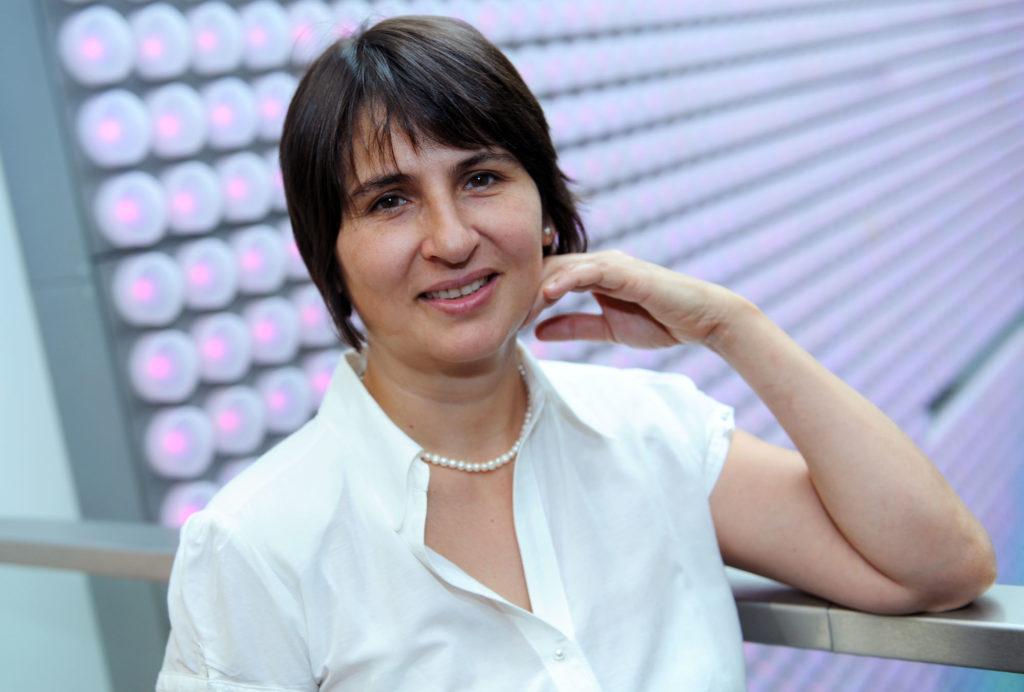Breaking the glass ceiling: a woman is never in the right age

Where and how are talented women lost? This is perhaps the most important question of your research titled ‘Selection of top managers at large companies’. How is Hungary standing in the region in the respect of diversity?
As far as I know, the research we completed last year is unique in the region, as we made interviews with altogether 44 senior company managers and recruiting agencies in the V4 (Visegrád) region, and 3 additional interviews in Croatia. Our analysis focused on the Visegrád countries. The position of female top managers is controversial, as in the time of socialism, people experienced and got used to the fact that women in Hungary work, study and are represented in growing numbers in management. From this point of view, our situation at the time of the change in the political system was much better, than the conditions in Western European countries, where most women got a job only when their children grew older. The reason why it is important is that in Hungary people have natural personal experiences about the fact that women can also be managers, and can reach quite high levels, in other words, they can break through the glass ceiling. The present situation here, looking at the education statistics, is that there is a high number of well-prepared, well-trained and motivated women in Hungary. At the same time, we have a quite traditional social and political climate in which the equality of sexes does not seem to be particularly important in the country. The general public thinks in a rather traditional way, for example, in the latest Eurobarometer statistics, in Bulgaria and Hungary 80 per cent of people asked say that the family role is the most important role for women. And this is where we see a contradiction: in every-day life, in spite of the traditional way of thinking observed in the case of a lot of people, a large number of women work, and in the manager category of ILO statistics, we have a good position in the respect of female managers. I have to add, however, that more women get promoted to leading positions in the public sector, than in the competitive sector: in the latter, it is usually men that are appointed to be managers. At the highest level – managing director, CEO – there are even less women. This is what we call vertical segregation. And if we go even higher, the ratio of women in boards of directors and other committees of companies is only 10 per cent – I am talking about companies listed on the stock exchange -, which is an extremely low number.
Why is it so? What is the lesson from the in-depth interviews?
This is partly a question of will, companies have to take steps, as there are plenty of talented women to choose from. It is usually a recruiting agency that is commissioned to select an important top manager, and the agency is financially interested in offering candidates that ‘fit’ the company and turn out to be good managers. Some of the recruiting agents said that in 85 per cent of the cases, they are able to guess right who the company needs. It means that if the so-called ‘old boys network’, a male team whose members are already used to one another has so far worked well at a company, it will stay as it is. Women have less chance to get on even the shortlist, where the winners are. Verbally, of course, everybody says that they want to hire the best applicant, but in most cases they find men only.
And what about women? Do they dare to apply for such high positions?
A lot of women lack self-confidence, for example they submit their applications to a top manager position only if they feel that they meet the requirements in 100 per cent. Men often have more self-confidence. And, of course, it is also important that ‘juggling’ with the family is time-consuming, and a number one top manager has to collect experience abroad, sometimes for several years. This is why a lot of women do not apply for such positions.
Is there a difference among the countries of the region in this respect?
Yes, there is, according to the findings of the study, between Poland and the other three countries. Poles are usually ‘hungry for a career’, even women. They agree to do more things for their career, and have a wider room for manoeuvre, as that is a much larger country. Another important fact is that the rest of the Visegrád countries pursue a different family policy, as Hungarian, Czech and Slovakian women can stay at home with their children for a long period of time, altogether for 3 years, while they get benefits (child care fee, and then child care benefit). Polish mothers, for example, return to the labour market much earlier to build their careers.

In your research, you wrote a recommendation to companies and to recruiting agencies, telling them how to facilitate that more women get high management positions.
Yes, a company manager should be aware, for example, of the ratio of the sexes at the company. In fact, there are good examples in Hungary, too: at Telekom, for instance, the ratio of men and women is already 50-50 percent in the top management, they introduced 4-day weeks in several cases, and deliver trainings to the staff about the issues of hidden prejudices, diversity and acceptance. Typically, it is mainly the really large multinational companies that enforce these considerations. It is also important that in Poland, for example, in the case of companies listed on the stock exchange, it is mandatory to publish the ratio of sexes in the company board. In fact, this is included in the new EU requirements, too, and brings quick results.
In your work, you talk about massive prejudices about women and their age. Elderly women have the most disadvantageous position.
One thing is certain: a woman is never in the right age. When she is young, she will definitely have children, and if someone wants children, she is already suspicious. It is also sad that over 45, when a woman could be on the top of her career, she is already considered elderly, while a man of 45 is in the best age. This, of course, is never said openly, but if a person of that age would like to get a position that suits her knowledge and experiences, companies emphasize that they would rather have someone youngish, dynamic and creative. And women are not credited with these abilities – these are the hidden prejudices.
As far as I know, you received the Polányi Károly Prize in 2020.
Yes, with Judit Lannert, for our joint work, our study titled ‘Women’s position in Hungarian academic life’. Sadly, in the area of science, just like in culture and the world of artists, hidden and not so hidden prejudices exist.
The Equalizer Foundation, of which you are a member, also supported your research.
Yes, for example, they helped me find the interviewees. Ten years ago, Edina Heal, head of Google visited me, and asked me to deliver a lecture about female leaders in their programme for the women’s day. Since then, I have been involved in the initiative. Our objective is to achieve that there are more women in management, and monitor that, too, and a lot of people set up a self-confidence group, and some of our members hold trainings about the recognition of hidden prejudice to companies. Our events are attended by hundreds of women, from the fields of culture, economy, education – and they are of different ages.
Finally: why is it good to have a lot of women in senior management positions at a company?
My answer is very simple: this is how it is fair and ethic. There are more women than men in society, and it would be nice if they could get power and leading positions in the same ratio.
Katalin Török